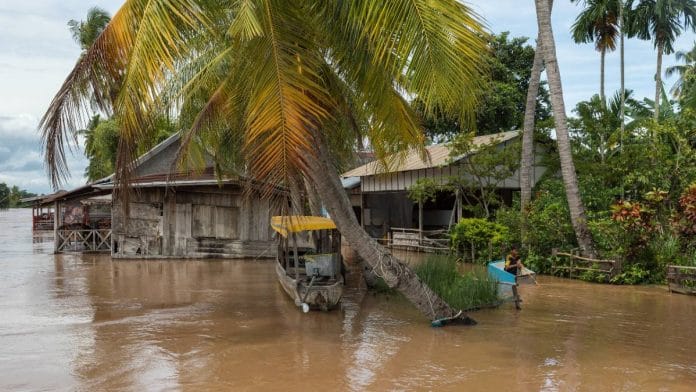-
A study from a British university reveals that more than half of young people experience climate anxiety on a daily basis.
-
The UN is calling for climate education to become compulsory in schools from 2025 to better equip children to cope with global warming in the future.
-
Only a handful of countries currently mandate climate change studies in their education systems, despite many being signatories to this objective in the Paris Agreement.
The effects of climate change continue to be seen and felt around the world. Intense summer heatwaves, severe flooding and damaging storms are becoming ever more common. The fear is that future generations will have to pick up the pieces if concerted global action isn’t taken before it’s too late.
Many believe that putting climate change-related subjects on school curriculums will help young people cope better with the reality of global warming, both practically and psychologically.
Last year, a global study revealed that climate anxiety affects the daily life of nearly half of young people. The research, carried out by the University of Bath, was based on surveys of 10,000 young people across 10 countries – 75% of respondents said they believe “the future is frightening”.
Growing calls for climate education
International bodies are calling for climate change studies to be taught in schools as a formal part of curriculums. The United Nations says that it should be part of teaching in all schools by 2025. A study by UNESCO analyzed education plans in nearly 50 countries and found that more than half make no reference to climate change. Only 19% made any mention of biodiversity.
American think-tank Brookings argues that more awareness of the environment in schools will evolve into changes in consumer behaviour, with reduced energy consumption and waste. It says this would have a bigger impact on trying to reach net zero by 2050 than from investing in renewable energy like wind turbines and solar power.
Which countries are moving to teach climate studies?
Despite signatories to the 2015 Paris agreement agreeing to improve education around climate change, very few countries have put this commitment into action.
A law was passed in Italy in 2019 which made it the first country to make climate-related studies compulsory in schools. All state schools are required to dedicate around an hour a week, or 33 hours per year, to climate change issues. “Without faster progress on education there will be no chance of achieving the goal of net-zero carbon emissions by 2050,” said Lorenzo Fioramonti, a former Education Minister.
Cambodia has integrated climate change into a new and expanded earth science curriculum for higher secondary schools which was introduced in 2020. As well as pupils learning about key approaches and technologies, 15 pilot schools were assigned to work on projects such as tree planting and climate-smart agriculture.
Some other countries are moving in a similar direction. Argentina’s parliament approved a National Law of Comprehensive Environmental Education in 2021. It requires environmental education to be taught in schools at all age levels. Prior to this, environmental issues were taught in subjects such as technology and social sciences.
Topics relating to climate change are taught in primary and secondary schools in the UK. However, the UK government has promised to deliver “world-leading climate change education” by 2023.
Slow progress on climate change education
A report by the union Education International which represents millions of teachers worldwide says that many countries are neglecting commitments to provide climate change education. Its research says that out of 95 countries that have submitted new or updated Nationally Determined Contributions (NDCs) as part of their commitment to the Paris Agreement’s goals, just 24% specifically mentioned the education of young people. It says that none are calling for compulsory Climate Change Education (CCE) as part of their national climate strategy.
The report authors also point out that developed nations in particular aren’t doing enough: “None of the top 20 carbon emitting countries nor the top 20 wealthiest countries that have submitted their updated NDC makes a reference to CCE. Only three of the top carbon emitting countries mentioned the wellbeing of future generations. Instead, it is countries with the lowest carbon emissions that are more likely to discuss CCE in the context of their national climate strategy.” Cambodia, Dominican Republic, Colombia and Argentina are all noted in the report as having taken concrete steps to embed climate studies into their education systems.
Young people call for climate education action
A survey by campaign group Teach the Future revealed that more than half of teachers in the UK believe their subject does not teach climate change in a meaningful or relevant way. Scarlett Westbrook, an 18-year-old climate campaigner, told BBC News that she wants significant changes to the school curriculum in the UK. She wrote what’s said to be the first student-written bill for parliament to change the Education Act. “The education system should centre the climate crisis into every single subject,” said Westbrook, who has been campaigning since she was 13 years old. By doing this “the generation of tomorrow will be prepared to deal with the effects of climate change and won’t be taken aback”.
The article originally appeared in the World Economic Forum.
Also read: Floods in MP to drought in UP — it’s monsoon’s wildest swing ever, but experts aren’t surprised






